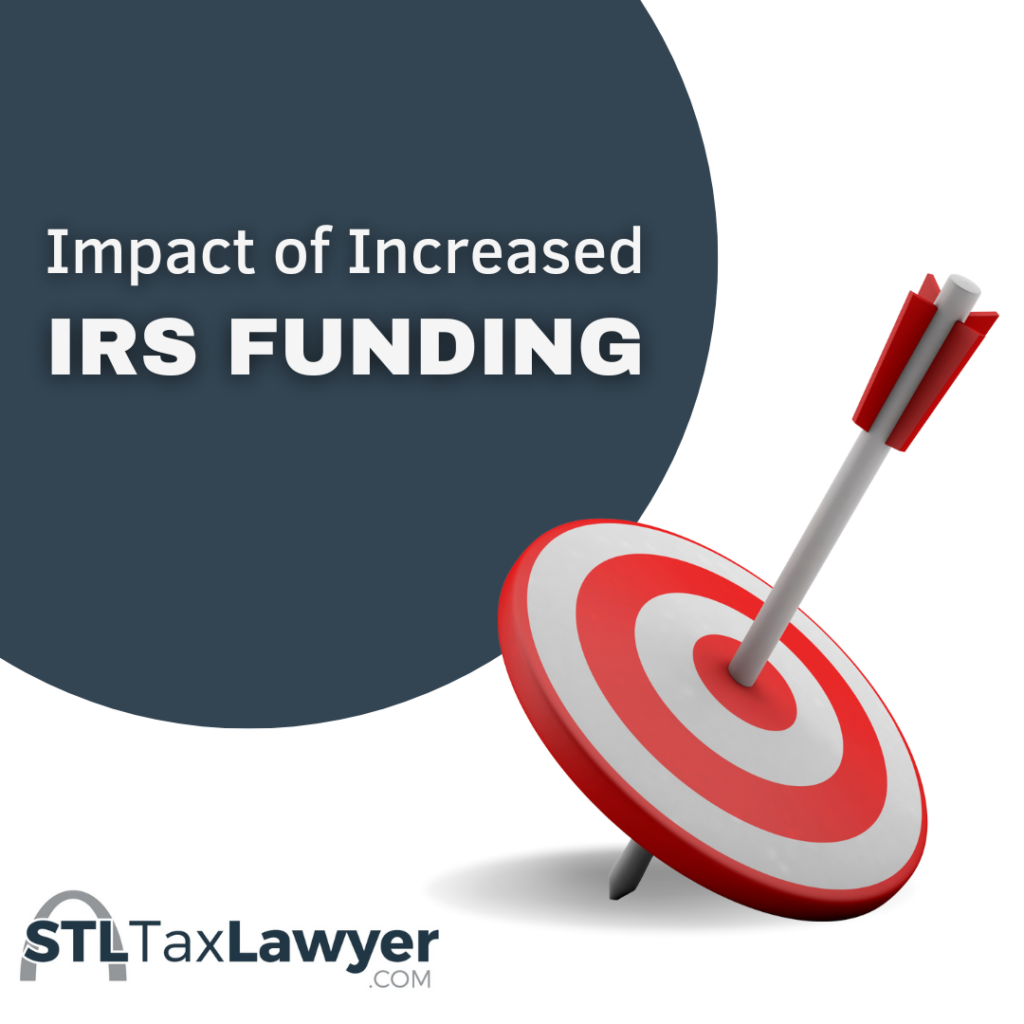How Does Additional IRS Funding Impact You?
In August 2022, Congress passed the Inflation Reduction Act, which included a provision that increased the IRS budget by $80 billion over the next 10 years.
Although over $20 billion was recently cut from the IRS’s budget as part of the debt ceiling bill, the remaining $60 billion accounts for a significant increase from the IRS’s 2021 budget, and the long-term tax compliance objectives remain the same.
These objectives include improving enforcement efforts to narrow the tax gap, while also modernizing current systems and increasing government revenue.

The most recent tax gap reported, which is the difference between taxes owed and taxes collected by the IRS, is almost $500 billion. Approximately $350 billion (or 70%) of the total gap can be attributed to individual income taxes.
Increased IRS Enforcement
Most importantly from our standpoint, the IRS said over half its budget increase will go towards investigations, regulatory compliance, and collections actions.
Additionally, the IRS seeks to double its current staff and projects to add thousands of new employees whose primary focus will be enforcement. While the increase in employees will take time to implement due to finding, training, and hiring new employees, the effect will likely be increased audit rates for certain groups of taxpayers.
However, IRS Commissioner Daniel Werfel has pledged to not increase historical audit rates on individuals and small businesses making less than $400,000 per year, a position affirmed by Treasury Secretary Janet Yellen.
The IRS will also hire specialized lawyers and accountants to audit complex returns, companies, and partnerships using data analytics and modern technologies.
The latest plan is meant to address the reduced capacity of the IRS by centralizing its compliance operations and modernizing its use of technology and analytics to find high-risk audit cases.
New areas like cryptocurrencies, as well as traditional areas of taxation, such as estate, gift, and employment taxes, are likely to see increases in audits as a result.
Even though compliant taxpayers will see some benefits, it is also possible that the staffing increase leads to more “no-change” audits. These are audits where taxpayers have correctly paid the amount owed to the IRS, yet they are still audited.
Those who correctly file their tax returns each year may still be negatively impacted as audits can add stress and worry, even for those who are fully compliant.
Taxpayer Benefits
The increase in IRS funding is not all bad, and many taxpayers will benefit from funds used to modernize IRS processes and improve customer service.
Some taxpayers already experienced the changes during the 2023 tax season as the IRS reported 5,000 new customer service employees. The immediate deployment of funds resulted in 80-90% of total phone calls being answered, compared to only 17% in 2022, and the average call wait time was reduced from 27 minutes in 2022 to only 4 minutes in 2023, according to the U.S. Department of the Treasury.
Additionally, in updating their technology, the IRS is creating new information reporting systems.
The systems are intended to receive more complete views of taxpayer information and increase noncompliance detection rates. These upgrades will also allow the IRS to identify and resolve mistakes more quickly.
Due to modernization, the IRS also intends to eliminate its paper backlog and digitize the filing process within 5 years. When completed, dozens of IRS notices will be able to be responded to online, compared to less than 10 currently available. Additionally, it will be possible to file taxes completely electronically.
Importance of Tax Compliance
While the average taxpayer will benefit from the IRS’s improved customer service, those taxpayers who are noncompliant, especially non-filers, will face increased pressure as the IRS increases enforcement capabilities.
Increased data capabilities will create opportunities for the IRS to better track non-filers in attempts to collect from them. More enforcement personnel and advanced technology will allow the IRS to target noncompliant taxpayers quicker and more efficiently.
Now more than ever, filing taxes on time and correctly is important to avoid the IRS’s scrutiny.
For questions about increased IRS enforcement and susceptibility to an audit, please contact Milton Law Group to schedule a consultation with former DOJ Tax Division Trial Attorney Mark Milton.


